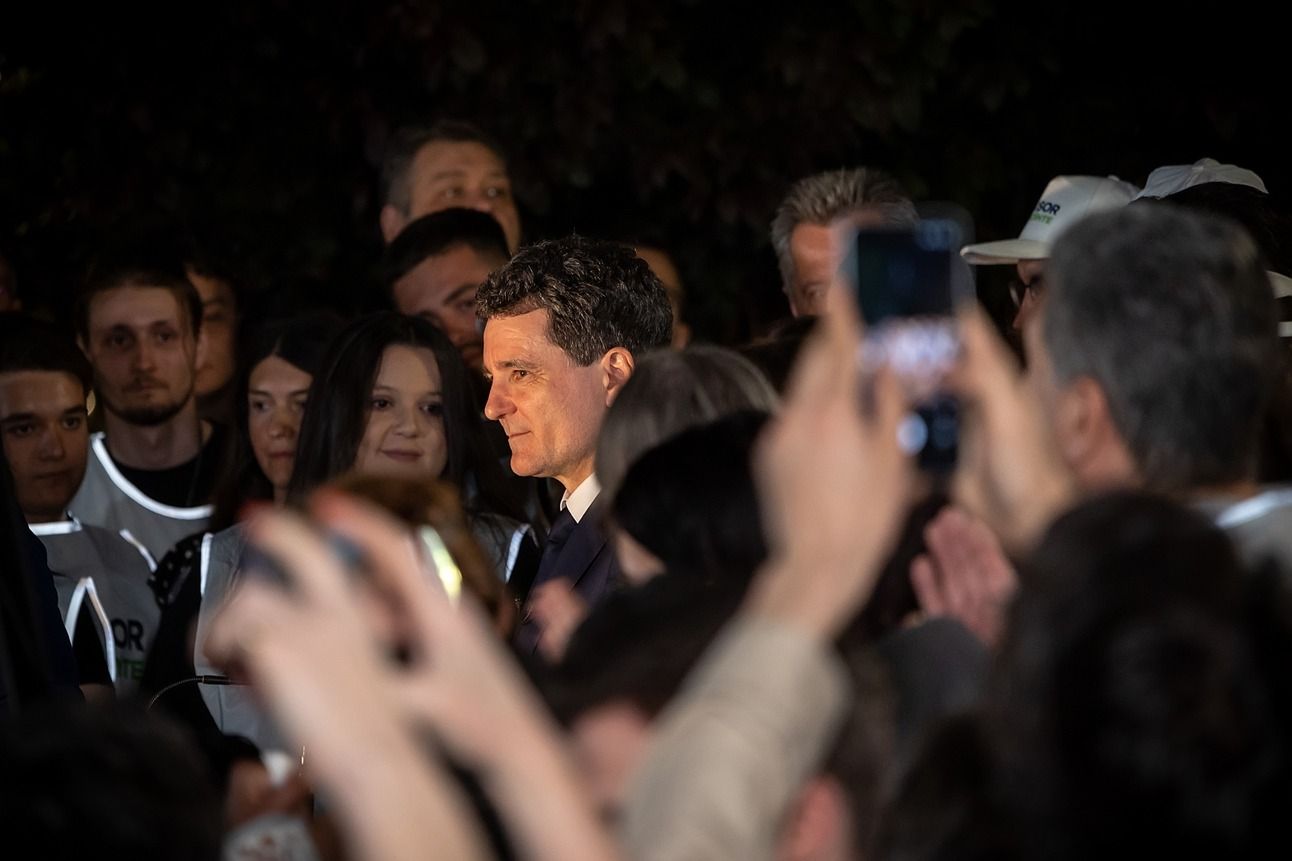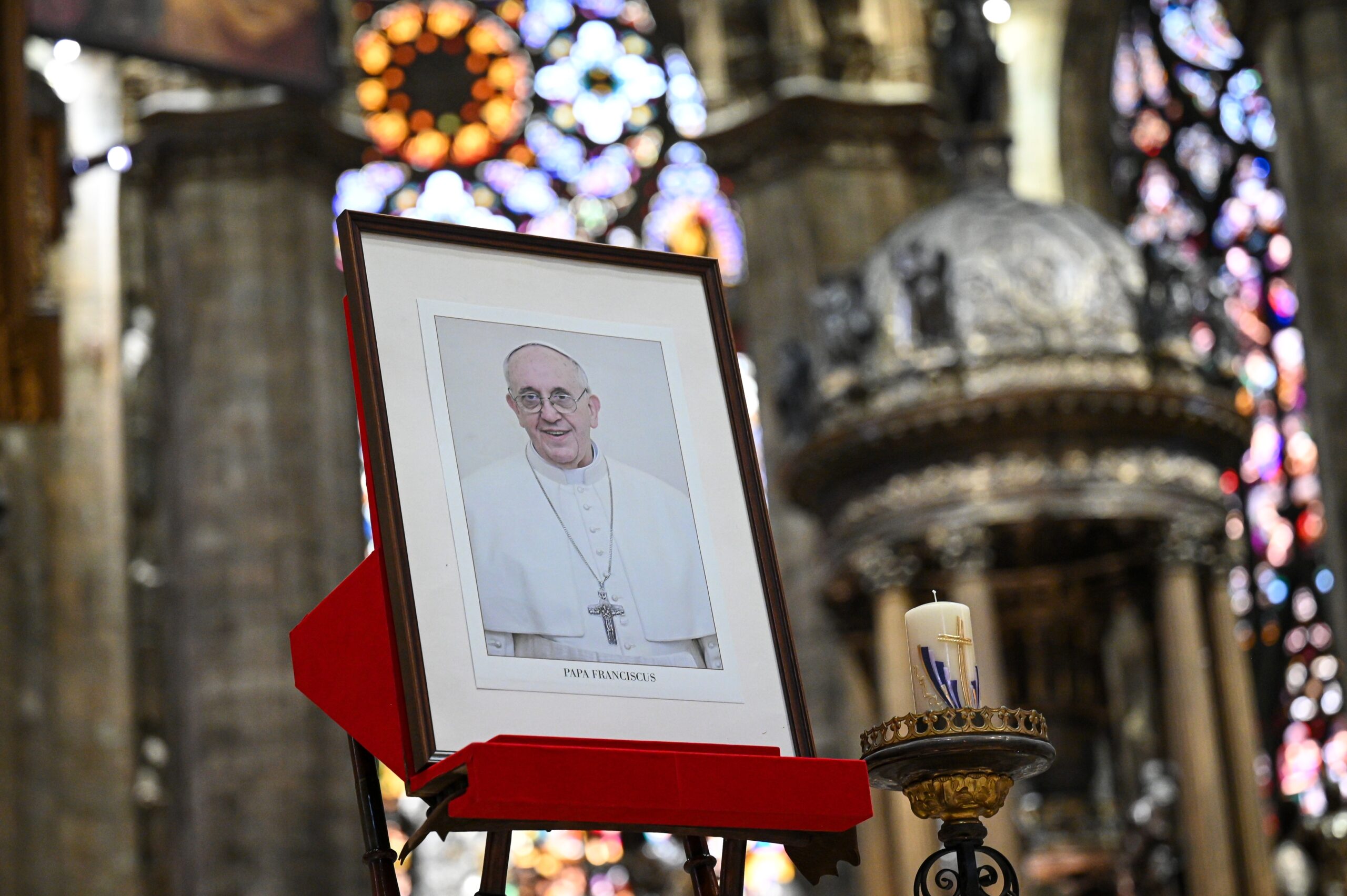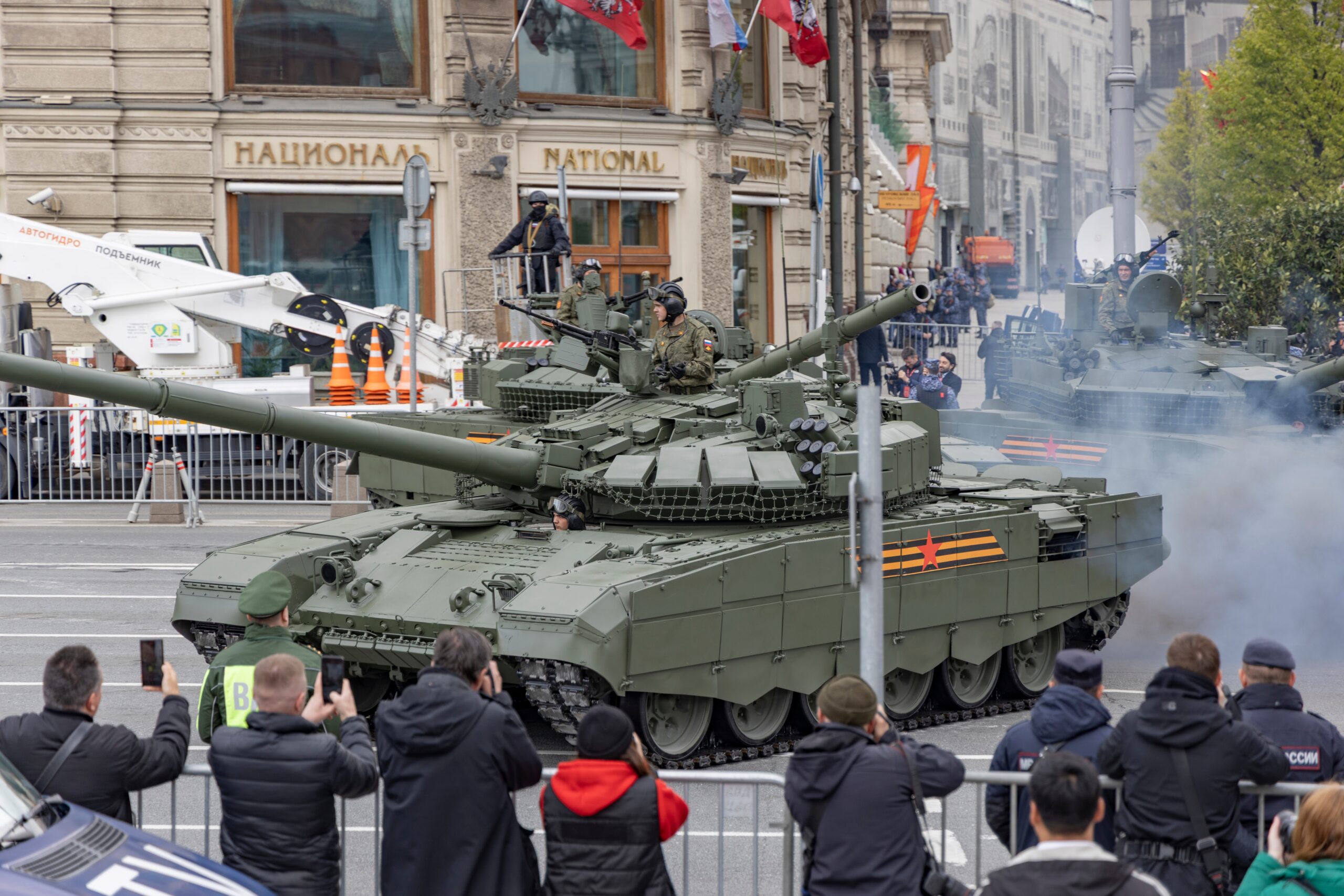DEAR READER,
No Eastern European nation managed to win this year’s Eurovision. There goes another of our predictions for 2025. Still, Estonia got the third place, so that’s something. But besides voting for their favourite song, Eastern Europeans were busy voting for their presidents too. In Poland, Rafał Trzaskowski narrowly managed to win the first round, taking 31.36% of the vote, trailed by Karol Nawrocki with 29.54%. The runoff will be held on June 1. The results only show that the follow-up campaign is going to be very fierce. We will be reporting on it in the following weeks.
Meanwhile, Romanians also voted for their president, and the whole Europe can breathe a sigh of relief with Nicușor Dan defeating George Simion in the second round. To fully understand what’s going on in the country, we asked Hugo Blewett-Mundy, an Associate Research Fellow at EUROPEUM to provide a deep dive this week.
Enjoy reading this week’s “brief”!
— Giorgi Beroshvili, Editor
TOP STORIES OF THE WEEK
🇬🇪 Georgia’s ruling party just made it a lot easier to ban its rivals. Parliament passed new amendments giving the Constitutional Court the power to ban political parties if they “substantially repeat” the goals or members of previously banned ones. The move appears to be aimed at the United National Movement (UNM), Georgia’s main opposition party, and could apply to nearly every major opposition group. Georgian Dream has also set up a parliamentary commission to investigate UNM-era governance, with plans to use its findings as grounds for legal action.
🇪🇺 Europe’s leaders held a high-profile summit in Albania. The European Political Community talks brought together heads of state from across the continent (minus Russia and Belarus) to discuss issues from security to migration. Ukraine was on the top of the agenda, with Zelenskyy urging tougher sanctions and criticising Moscow’s refusal to engage seriously. Germany’s new chancellor Friedrich Merz made his summit debut alongside Macron, Starmer, and Tusk, all fresh off a trip to Kyiv.
🇺🇦 / 🇺🇸 Zelenskyy and Vance met in Rome. The meeting, which occured during the pope’s inauguration, centered around discussions of the ceasefire. The meeting came before Trump’s scheduled call with Putin on Monday, which could set the tone for renewed negotiations or direct talks. Meanwhile, Russia launched its biggest drone barrage of the war, signaling little interest in de-escalation so far.
🇪🇪 / 🇷🇺 Russia detained a Greek-owned, Liberia-flagged oil tanker in the Baltic sea. After leaving Estonia’s Sillamae port, the tanker allegedly crossed into Russian waters via a sanctioned navigation channel. Estonia linked the move to its crackdown on Russia’s shadow fleet. The ship was carrying Estonian shale oil to Rotterdam. The incident comes just days after Moscow flew a fighter jet over the Baltic Sea during Estonia’s attempt to block a Russia-bound tanker.
A MESSAGE FROM OUR PARTNER
Is it your worldview? Or is it an algorithm?
Every day, algorithms decide what news you see—and what you don’t. Over time, this can trap you in an echo chamber, shielding you from perspectives you might disagree with. These filter bubbles don’t just shape opinions, they fracture our shared reality.
Enter Ground News.
Instead of pushing one narrative, Ground News shows how outlets from the left, center, and right cover the same story so you can see the full picture.
And instead of an engagement-maximizing algorithm skewing your worldview, their Blindspot Feed reveals stories that are being underreported by either the left or the right—so you can see both the story told and the story untold.
Join 1M+ readers from across the political spectrum who use Ground News to challenge their worldview and become more balanced, well-informed newsreaders.
EXPERT OPINION
Romania’s presidential election is a wake-up call for Europe

Romania has come a long way since communism crumbled across Central and Eastern Europe more than three decades ago.
Despite the turmoil of its violent revolution in 1989, the country has transformed into a strong market economy and become a staunch advocate of European integration. But Romania’s remarkable progress towards liberal democracy finds itself facing its most serious challenge.
Nicușor Dan — the pro-European mayor of Bucharest — defied the predictions to secure a stunning victory against his nationalist rival — George Simion — in a controversial rerun of the presidential election last December. The result was extremely close in the end. Only around 900,000 votes decided the victor, with Dan on 54% of the vote and Simion on 46%.
NATO and the European Union can breathe a collective sigh of relief as one of its strongest allies reaffirmed its pro-Western orientation. Under Romania’s semi-presidential system, the president has significant executive powers and can take part in government meetings that concern Romanian foreign policy.
That said, it would be a mistake for the West to dismiss the result of yesterday’s vote simply as a close call and return to business as usual. Rather, Simion’s surge in support should be the impetus to confront the failure of successive Romanian governments to reckon with their state’s communist past.
Romania’s break from communism was far from a clean one. The revolution that overthrew Nicolae Ceauşescu descended into a bitter power struggle between different groups of the former communist elite. This held Romania back from making much-needed structural reforms to consolidate its democracy and delayed the country’s EU accession until 2007.
But in the years that followed, Romania’s flawed post-communist transition remained unaddressed. Instead, a duopoly of power took hold in the country under the centre-left Social Democratic Party (PSD) and the centre-right National Liberal Party (PNL). Since 2012, these two parties have dominated Romanian politics and presided over a period of corruption.
In 2015, Victor Ponta - the PSD leader who served as Romania’s prime minister - was charged with fraud, tax evasion, and money laundering. The PSD also made proposals to issue pardons for certain corruption offences and bring the judiciary under government control. Further controversial changes were introduced by the social democrats that made it difficult to prosecute abuses of office.
Despite international and domestic criticism of PSD's time in office, the centre-left party returned to power under a grand coalition with their conservative opponents — the PNL — in 2021. The economic fallout from the Covid-19 pandemic meant that political stability took precedence over matters of accountability. The effectiveness of Romania’s public administration was left neglected as a result — particularly in rural infrastructure development — with profound political implications.
The Romanian people have grown increasingly frustrated with what they see as a state that solely benefits a corrupt former communist elite. While support for the EU and NATO remains strong, Romanians are disappointed with their country’s quality of governance. A recent opinion poll conducted by AtlasIntel found that only 28% are satisfied. The resentment created the conditions for alternative political forces to emerge sympathetic to Russia, such as Simion’s Alliance for the Unity of Romanians (AUR).
The ideological force of nationalist populism tapped into public anger at the constitutional court’s decision to anul last year’s presidential election. The AUR accused Romania’s two ruling parties of using the court for the purpose of retaining their grip on power at the expense of ordinary Romanian citizens. It is likely that yesterday’s close result will do little to alleviate the distrust that many Romanians feel towards their system of government.
Romania’s crisis of confidence in democracy leaves the country at a perilous moment in its post-communist transition, particularly as it faces acute fiscal challenges. The Cooperation and Verification Mechanism has achieved notable successes — Romania’s National Anti-Corruption Directorate can point to an impressive track record. But the EU can no longer afford to take for granted the support of one of its most strategically-important member states.
More needs to be done to ensure that the Romanian public sector works in the interests of the citizens it serves. The EU needs to engage with the incoming administration in Bucharest to intensify Romania’s anti-corruption agenda. This should include strengthening the ability of Romanian political parties to combat entrenched clientelism and uphold core standards in government.
Otherwise, a political climate may well develop in the Southeastern European state that is conducive to deeper democratic fragmentation and instability with only Russia standing to profit.
— Hugo Blewett-Mundy, Associate Research Fellow at EUROPEUM
SUPPORT NEW EASTERN EUROPE

As Russia's invasion of Ukraine enters its third year, access to reliable information is crucial for global understanding of the situation on the ground.
New Eastern Europe, a non-profit publication based in Poland, has been dedicated to covering Central and Eastern Europe since 2011. Our extensive network of trusted contributors across the region is committed to helping us be the primary English-language platform, giving a voice to those affected.
ARTICLES OF THE WEEK
CARTOON OF THE WEEK

Do you want to see more of Andrzej’s drawings? Check out our dedicated gallery page featuring his cartoons here.





